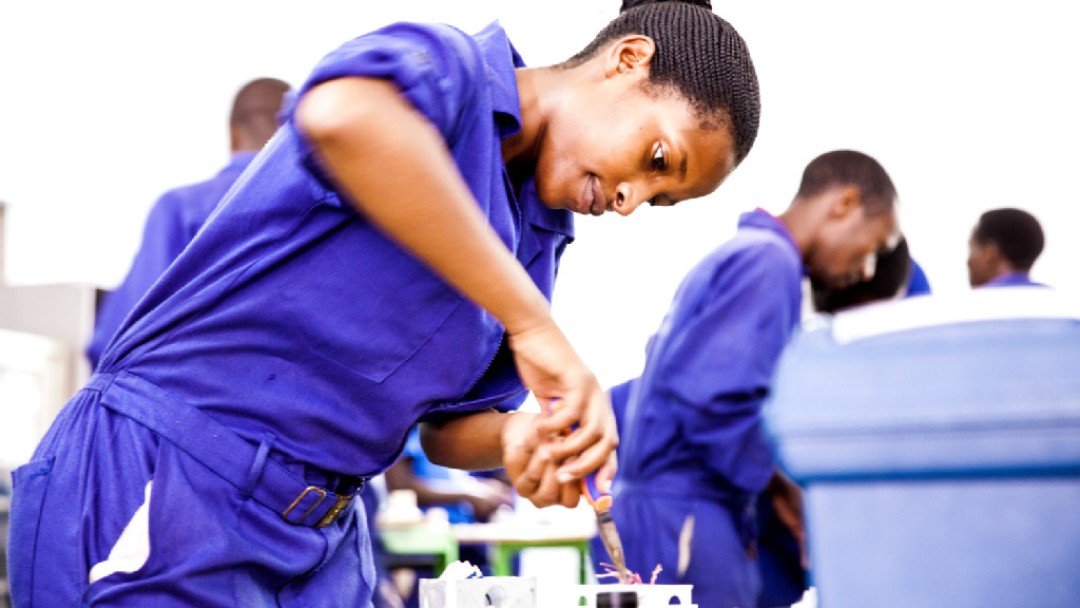
In Kenya, many girls are often prevented from finishing higher levels of education. Their parents lack the funds, the school is too far away and an extra pair of strong hands is needed to work in the fields. There are many reasons why young women in particular frequently look back on a disrupted educational career, even if they are gifted enough to complete secondary school and the associated qualifications. These qualifications, however, are the only way they can lay the foundation for more demanding further vocational training and thus for a secure and suitably well-paid job. Without a secondary school leaving qualification, they risk falling into the informal sector with bad pay and working conditions.
To counteract this, KfW, on behalf of the Federal Ministry for Economic Cooperation and Development, is supporting a scholarship programme for young people who want to attend secondary school or complete vocational training. It is called “Wings to Fly” because it aims to give young people the boost they need for a successful educational career and to take advantage of subsequent opportunities. Alongside KfW, other organisations involved include the Equity Group Foundation and the Mastercard Foundation. KfW participates as a co-financier.
The programme aims to enable underprivileged young people with excellent grades to attend secondary school or vocational training. It also includes mentoring programmes, extra-curricular events, careers advice and health care. This should allow the students receiving support to not only complete their qualifications with good grades, but also to assume responsibility in society.
Since “Wings to Fly” began, more than 26,000 pupils have received a scholarship, with the majority of the beneficiaries being girls and young women. Of those, 98% have successfully completed secondary school, 94% had grades that qualified them for further study and 79% played an active role in their school.
The programme, which has been running since 2010, is seen as a huge success in Kenya. It initially concentrated on secondary education. It has now expanded to include scholarships for vocational training, to promote sound vocational training as a high-quality, feasible alternative to university studies. This is because vocational training would be highly beneficial in Kenya, but it is not yet well regarded. The expansion of the scholarship programme intends to counter this. The focus is particularly on agricultural professions that are needed in Kenya and offer good career prospects.
“Our experience has been that girls make particularly good use of their opportunity to complete their education, as this enables them to break out of the vicious circle of poverty for themselves and for generations to come,” explains the responsible KfW portfolio manager David Ohlig, describing the benefits of “Wings to Fly”.
Share page
To share the content of this page with your network, click on one of the icons below.
Note on data protection: When you share content, your personal data is transferred to the selected network.
Data protection
Alternatively, you can also copy the short link: https://www.kfw-entwicklungsbank.de/s/enzBX_Yk
Copy link Link copied